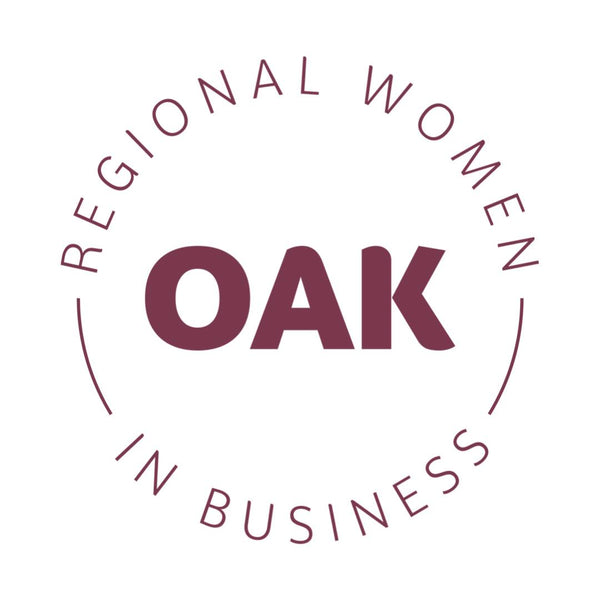Show your appreciation and support us in continuing to produce high quality content by sponsoring an episode or simply "buy us a coffee" - donate here
[Timestamp: 00:04:10]
Rural entrepreneurs Jo Palmer and Julia Spicer have teamed up together to launch The Connection Table to ensure rural Australia has a voice at decision making tables across the country.
Julia, an experienced business leader based in Goondiwindi, Queensland, says The Connection Table connects rural, regional and remote leaders with opportunities on boards, advisory committees and beyond.
“It’s a platform that brings together leaders from across rural, regional and remote Australia. So sector agnostic for men and women who are interested in being able to leverage work that they've been doing to look at how they want to position themselves on boards advisory committees,” says Julia.
“But really - I guess selfishly - it’s to make sure that we can support the impact that we know regional, rural and remote Australia can have on a national level.”
The Connection Table is a membership-based subscription model designed for those already on a leadership path. The platform offers resources to help members find roles on boards, become keynote speakers, and continue their advocacy work.
“The Connection Table is suitable for anybody who is already on their leadership pathway. You might have done a leadership program already, you might be an alumni of the AgriFutures Rural Women’s Award, Nuffield or an Australian Rural Leadership type of a program.
“You've done a level of professional development already and you are looking for what's next. You're looking for how you use that professional development to get onto boards, to become a keynote speaker at conferences, to look at what your next step is around your leadership or advocacy role that you might want to take.”
Julia highlighted the unique features of the platform, such as monthly lunch with friends sessions which bring together influential voices from across Australia for insightful conversations. The first event, scheduled for October 25, will feature leaders like Catherine Marriott and Fleur Anderson, both involved in the platform's inception.
“We have monthly lunch with friends where it is very much the opportunity to hear from leaders, key people from across Australia who will join us literally for lunch to have some conversations.
"But we also will be running professional development through the platform. Anything from how to prepare an online keynote speech through to cross cultural leadership, how we manage remotely; these topics that we're having and these challenges that we're having regardless of whether we're in agriculture, local government or philanthropy across regional Australia.
“These are some of the areas that we really want to be able to help people focus on and give them some skills, confidence and, importantly, some networks to be able to cross fertilise and work with different people, and start to get some of these regional voices and regional leaders into decision making spaces and also onto other stages around Australia.”
Julia also touched on the persistent gap between women in rural workforces and leadership roles.
"What we find is often the statistics of women in organisations or women in business is roughly 50/50. The challenge we find though is when we look at leadership roles within industry or within business, that drops to about 1%.
"We know that some of that is when women in particular leave the workforce to not only have the babies, but then raise the families. That still happens, more regularly than it does the men leaving the workplace to do that. To then come back in at that leadership level is more challenging for people.
"There was some work done years ago with some of the corporate ag-businesses across northern Australia and that was certainly the statistic; 50% of their workforce was women but only 1% in leadership roles.
"There's that element to it, and then the other really interesting thing from what's seen both anecdotally and also through some of the research, is the amount of time that women spend on volunteer boards before they think they have the experience or skills to move onto a paid board role. In some cases that is decades or certainly at least five or six years.
"We're potentially missing women joining bigger board roles, paid board roles, we're missing five or 10 years of their experience around that table because they don't think they're ready yet. In some circumstances that might be the case but I would doubt it's the case for most of the ladies."
With a third of Australians living in rural areas. Julia and Jo believe that representation on state and national boards should reflect this.
“A third of Australians live in the region. If we follow that through to state health boards, national advisory councils, etc, you would assume that a third of the boards and councils at state and national level should also be filled by regional people. We know that's not the case.
"We see The Connection Table as a way to bring regional Australia across sectors into an area where we can then be accessed while we're all in our silos of industries or states. It's really hard for people to be able to find us and engage with us.
"There's also the flip side of being far more easy then for a federal or state government department to come and find the clever leaders who are doing a level of professional development and have found their way to The Connection Table.
"We're really looking at it as a two-way opportunity for the regions to better engage, and also bring our skills and experience to the table."
The Connection Table is certainly set to play a key role in making rural Australia more visible, accessible and engaged in shaping the future of the nation.

